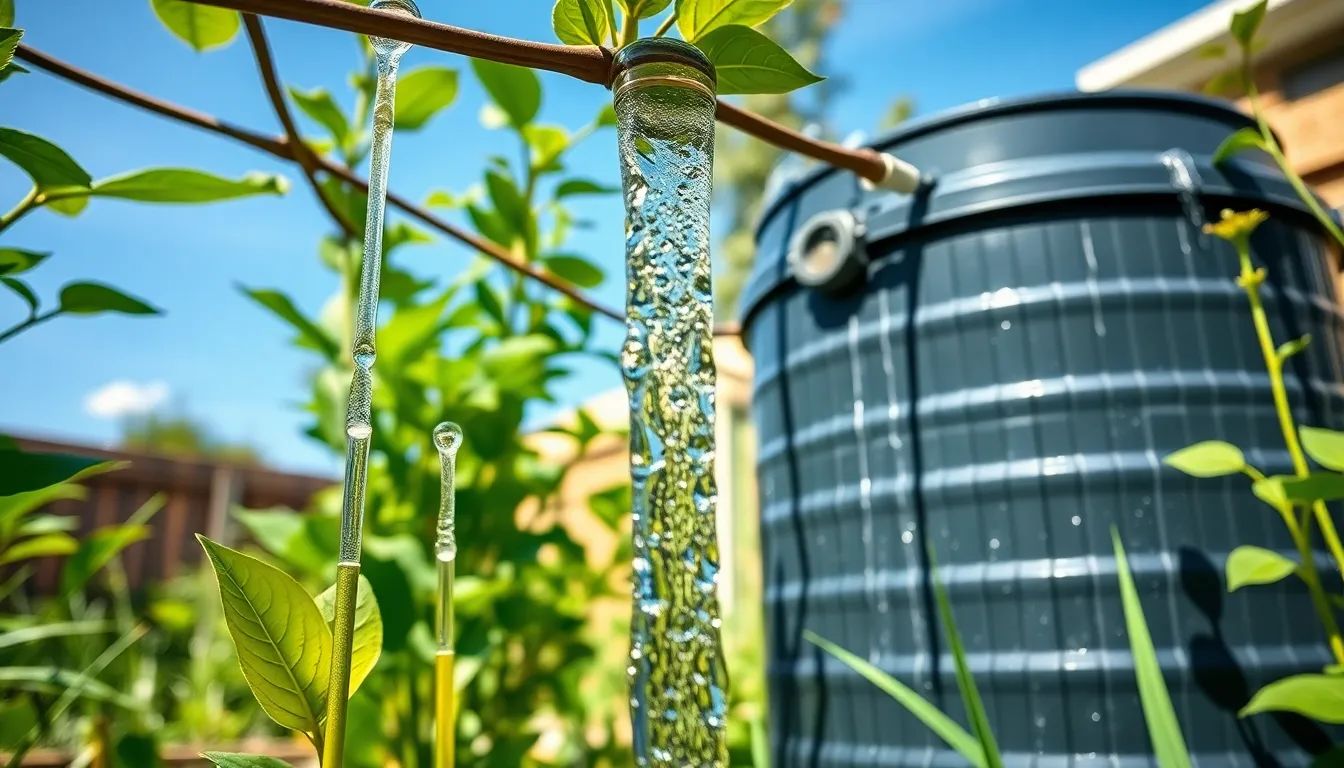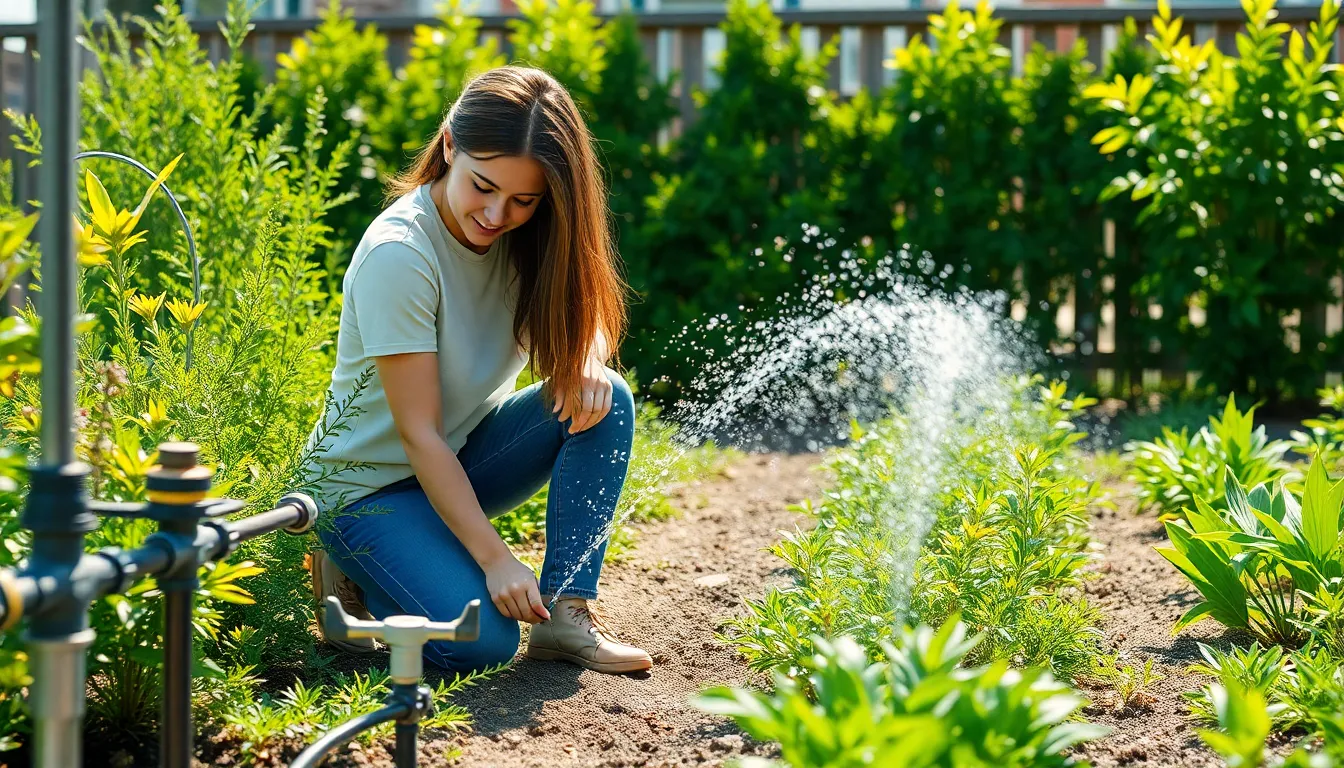Water conservation technology is becoming essential in a world where fresh water is increasingly scarce. As populations grow and climate change intensifies, the demand for sustainable water management solutions has never been greater. Innovative technologies are emerging to help individuals and communities reduce water waste while maximizing efficiency.
From smart irrigation systems to advanced filtration methods, these tools not only promote responsible usage but also empower users to make informed decisions about their water consumption. By embracing these technologies, society can protect precious water resources and pave the way for a more sustainable future. Understanding the latest advancements in water conservation technology is crucial for anyone looking to make a positive impact on the environment.
Table of Contents
ToggleOverview of Water Conservation Technology
Water conservation technology encompasses methods and tools aimed at optimizing water use and minimizing waste. These technologies arise in various sectors, including agriculture, industry, and residential spaces.
Smart Irrigation Systems
Smart irrigation systems utilize sensors and weather data to adjust watering schedules based on soil moisture and climatic conditions. These systems optimize water usage by delivering precise amounts where and when needed. Implementation often results in a 20-50% reduction in water consumption compared to traditional irrigation methods.
Advanced Filtration Methods
Advanced filtration methods enhance water quality and recovery by removing contaminants. Techniques like reverse osmosis and nanofiltration improve the sustainability of water use in both residential and industrial settings. These methods can reclaim up to 90% of water, making them essential for effective conservation.
Water Recycling Technologies
Water recycling technologies capture and treat wastewater for reuse. Systems integrate in residential and commercial facilities, allowing the repurposing of greywater for irrigation, flushing toilets, and other non-potable applications. Implementing these systems can conserve significant volumes of freshwater.
Rainwater Harvesting Systems
Rainwater harvesting systems collect and store rainwater for later use. These systems involve the use of gutters, storage tanks, and filtration to ensure captured water is safe for irrigation and other purposes. Installing rainwater systems can reduce reliance on municipal water supplies by up to 50%.
Efficient Appliances and Fixtures
Efficient appliances and fixtures, such as low-flow faucets, showerheads, and toilets, significantly reduce water consumption in homes and businesses. These products can cut water usage by 30-50% without sacrificing performance. Adopting these technologies contributes to overall conservation efforts.
Incorporating these advanced technologies represents a proactive approach to addressing water scarcity. By embracing innovation, individuals and communities foster sustainable water management practices essential for the environment’s protection.
Key Technologies in Water Conservation

Innovative technologies play a crucial role in enhancing water conservation practices. The following subsections detail prominent methods that efficiently reduce water wastage.
Drip Irrigation Systems
Drip irrigation systems deliver water directly to plant roots through a network of tubes and emitters. This method reduces water usage by 30-50% compared to traditional irrigation techniques. Drip systems minimize evaporation and runoff, ensuring water penetrates the soil effectively. They allow for precise control over watering schedules, adapting to specific plant needs and soil moisture levels.
Rainwater Harvesting
Rainwater harvesting involves collecting and storing rainwater for later use. This technology can capture up to 50% of a household’s water supply needs, reducing dependence on municipal water systems. Collected rainwater can serve various purposes, including irrigation and non-potable uses like toilet flushing. By using rainwater, individuals and communities can significantly lower their water bills while promoting sustainable resource management.
Greywater Recycling
Greywater recycling repurposes wastewater from sinks, showers, and washing machines for non-potable applications. This system can reclaim up to 90% of used water, making it a valuable resource in water-scarce regions. Greywater can be treated and reused for irrigation, flushing toilets, and even some cleaning tasks. Implementing greywater systems enables households to efficiently manage water resources while contributing to overall conservation efforts.
Benefits of Water Conservation Technology
Water conservation technology offers numerous benefits, significantly impacting the environment and the economy. These advancements enhance resource management and encourage responsible water usage.
Environmental Impact
Water conservation technology drastically reduces water consumption, alleviating the stress on natural water sources. Innovative systems minimize runoff and improve soil health, leading to better ecosystem balance. For example, smart irrigation systems cut usage by 20-50%, significantly conserving freshwater supplies. Advanced filtration methods, such as reverse osmosis, recover up to 90% of wastewater, promoting sustainable practices. Furthermore, rainwater harvesting captures up to 50% of household water needs, effectively decreasing reliance on municipal resources. These technologies help mitigate the ecological footprint, ensuring that vital ecosystems can thrive.
Economic Advantages
Water conservation technology generates substantial economic benefits. Reduced water usage translates to lower utility bills for households and businesses. For instance, implementing low-flow faucets and toilets can decrease water consumption by 30-50%, leading to significant cost savings over time. Additionally, effective irrigation practices increase agricultural productivity while minimizing water input, enhancing profitability for farmers. Industries utilizing water recycling technologies can reclaim up to 90% of water for non-potable uses, further driving down operational costs. The broad adoption of these technologies not only fosters economic resilience but also promotes investments in sustainable infrastructure.
Challenges and Limitations
Water conservation technology faces several challenges and limitations that affect its widespread adoption and effectiveness.
- High Initial Costs: Many advanced systems, such as smart irrigation and filtration technologies, require substantial upfront investments. This cost can deter individuals and organizations from implementing these solutions, especially in low-income areas.
- Maintenance Requirements: Effective operation of water conservation technologies often demands regular maintenance and monitoring. Neglecting maintenance can lead to system malfunctions, minimizing the intended benefits of reduced water usage.
- Limited Awareness and Education: Many consumers lack awareness of available technologies or their benefits. This knowledge gap can result in underutilization of efficient systems, impeding progress in water conservation efforts.
- Technological Barriers: Some regions face challenges related to infrastructure limitations or lack of access to reliable internet services. Smart technologies depend heavily on connectivity, which restricts their functionality in underserved areas.
- Regulatory Hurdles: Regulatory frameworks may lag behind technological advancements. Outdated policies can hinder the integration of modern water conservation solutions, leading to inefficiencies in water management practices.
- Climate Variability: Water conservation technologies can struggle to adapt to changing climate conditions or extreme weather events, potentially limiting their effectiveness during periods of drought or heavy rainfall.
Addressing these challenges requires collaborative efforts among stakeholders, including policymakers, technology developers, and consumers. Understanding limitations aids in the effective planning and implementation of water conservation technologies, ultimately enhancing their impact on sustainable water management.
Future Trends in Water Conservation Technology
Emerging technologies promise to reshape water conservation practices. The integration of artificial intelligence (AI) in water management offers predictive analytics, enhancing water usage efficiency. AI systems analyze data from smart sensors and weather forecasts, allowing for real-time adjustments to irrigation schedules, resulting in a potential 30% reduction in water use.
Innovations in smart materials are also on the rise. Self-cleaning surfaces and smart membranes can significantly improve filtration methods and reduce maintenance needs. These materials can enhance efficiency in reverse osmosis systems, increasing recovery rates to over 95% in certain applications.
Blockchain technology is gaining traction as well. It can provide transparency in water usage and ensure accountability in water rights. By creating decentralized records, stakeholders gain reliable insights into consumption patterns, promoting fair distribution and encouraging responsible practices.
Developments in drone technology offer new perspectives on water conservation. Drones equipped with imaging sensors can assess irrigation effectiveness and monitor soil moisture levels across large areas. This capability ensures timely interventions, reducing wasted resources significantly.
Cloud-based management systems are gaining popularity. These systems enable users to monitor and control water usage remotely. By accessing real-time data, consumers and businesses can optimize their water consumption patterns and identify potential leaks, contributing to significant conservation efforts.
The future trends in water conservation technology highlight a shift toward interconnected systems, combining artificial intelligence, smart materials, blockchain, drones, and cloud computing. These advancements will empower individuals and organizations to adopt innovative solutions, addressing the challenges posed by water scarcity in an increasingly resource-conscious world.
Water conservation technology is essential in tackling the pressing issue of water scarcity. By embracing innovative solutions like smart irrigation systems and advanced filtration methods, communities can significantly reduce water waste. These technologies not only promote responsible usage but also foster a sustainable future for all.
As advancements continue to emerge, the integration of AI and smart materials will further enhance water management practices. Overcoming challenges such as high costs and limited awareness will require collaboration among stakeholders. With collective efforts, individuals and organizations can leverage these technologies to protect vital water resources and ensure a resilient environment for generations to come.





